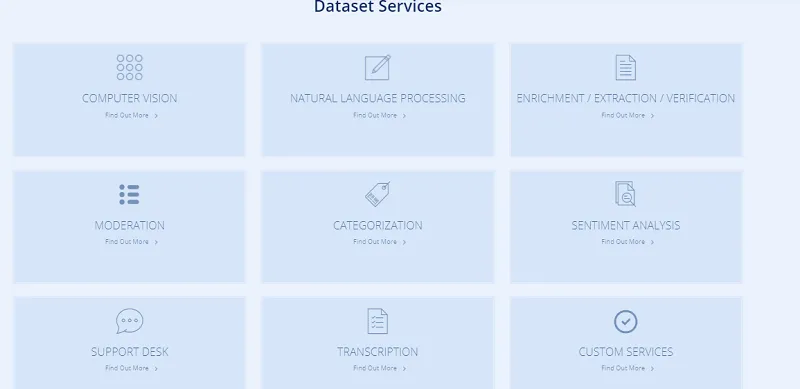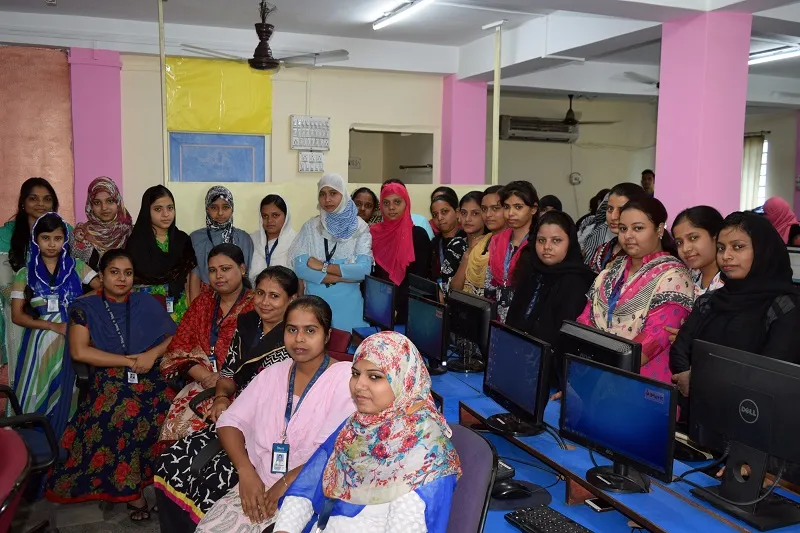With ‘big data-lifting’ behind the scenes, iMerit wants to help companies better use their data scientists
Can a for-profit social enterprise with a ‘spiritual headquarters’ in the US and workforce in India keep up with the times and succeed? Here is how iMerit has fared so far.
"Give a man a fish and you feed him for a day; teach a man to fish and you feed him for a lifetime” is an oft-quoted verse. A modern re-interpretation could be, “Give a man (or woman) a digital identity and you feed them for a day; teach them to be a part of the digital economy and you feed them for life.”
While artificial intelligence may be the current buzzword around the world, iMerit, based out of the US and India, offers an on-demand human-empowered computing workforce.
Their goal is to help companies unlock the hidden value within their unstructured data and improve their process efficiencies. The company currently has over 1,000 employees across five delivery centres.
iMerit claims to have an employee attrition rate of less than five percent and output accuracy higher than 95 percent in delivering cost-effective, quality projects on time and on budget. How iMerit achieved this is an interesting story. YourStory recently spoke to Jai Natarajan, Vice President, Technology and Marketing at iMerit, to trace their journey.
YourStory recently spoke to Jai Natarajan, Vice President, Technology and Marketing at iMerit, to trace their journey.
The story so far

iMerit was founded in 2012 by Radha Basu, who led the IPO of Support.com and was General Manager of Hewlett Packard’s $1.5 billion channel business. iMerit President DD Ganguly, on the other hand, is a serial entrepreneur who founded and sold two software companies to global software corporations. iMerit was created with the goal of doing business while creating social impact.
Radha and her husband, Dipak Basu, had in 2006 co-founded Anudip Foundation, a social enterprise, to help people develop workplace skills like data entry. Talking to YourStory, Jai said:
We take smartphones for granted now. But back then (2006), computer literacy itself wasn’t common. Radha foresaw that digital livelihoods would allow technology jobs to be spread out away from the metro cities to smaller towns. There were a lot of people who were getting educated but were not computer literate.
Related read from 2012: Livelihood Initiatives Through Knowledge; Kolkata Based Anudip
Encouraged by the success of Anudip Foundation, she thought of furthering the cause by adding computer literacy to workplace skills and helping people from underprivileged communities to join the digital economy.
iMerit currently claims to have dozens of high-profile tech companies such as Microsoft, eBay, Catholic Relief Services (a $270 million nonprofit), Aptara as customers. iMerit closed a $3.5M Series A round in 2015 and counts Omidyar Network, Khosla Impact and Michael & Susan Dell Foundation among its backers.
Related read from 2013: Omidyar Network Invests in iMerit Technology Services
Going from internet-based tasks to Big Data
iMerit was started as an experiment. Jai shared that in 2012, a for-profit social enterprise wasn’t common. iMerit initially started working on internet-based tasks related to data. Most new businesses have large manpower running in the background and means of delivering it through the internet had started taking off. Jai elaborated,
Most big companies are powered by human curated data in the background…. The first step is structuring the data itself, which lies in obscure formats, and sometimes is not even data but is customer feedback.
A company may have 10 years of customer feedback on their servers, but it will probably not be standardised. Feedback could be in slang, Hinglish or short tweets. It is generally difficult for machines to derive machine insights from the data until someone structures and standardises it.
Most companies aspire to be data-driven organisations these days. But data scientists are a valuable asset, hard to hire and aspire for challenging roles. Jai said according to reports the biggest complaint among data scientists is that almost 60 percent of their time goes in preliminary tasks of preparing the data - cleansing, structuring and anointing.
iMerit is aiming to fill that void. The company claims to have 80 percent of current employees from underprivileged backgrounds (families with less than Rs 6,000 monthly income). These employees undergo training through Anudip and iMerit and are trained in specialised skill sets, ranging from data extraction and categorisation to natural language processing and sentiment analysis.

iMerit works with account managers of different companies to manage their data journey. Customers are then able to focus on projects that drive their company forward while iMerit handles the “big data lifting”. In its essence, iMerit is an on-demand digital data services company that transforms unstructured data into useful enterprise-grade information.
Jai explained that since iMerit comprises a team of specialists, they have their own internal platform to help manage the distribution of work. Talking about their business model, he said,
The model is SaaS-like but they aren’t like long-term BPO contracts; they’re dynamic and evolve based on customers’ needs.
Augmented intelligence- Jugalbandi between humans and AI
Jai had studied AI in his undergraduate course and recalled that at the time it took three days to run an experiment on the server. AI went into a long winter and recently made a comeback. What has changed? He said:
Actual techniques and algorithms were known a long time ago; deep learning may be an evolution but it is not a revolution. It is the ‘brute forcing’ power of cloud computing, which has brought down computing time from three days to 30 seconds now.
Weighing on the future of jobs and the impact of AI debate, Jai reasoned that “pure AI” would be useless as it would lead to “garbage in and garbage out” feedback loops. Humans will always be needed to train AI. He said,
The entire ecosystem is like a jugalbandi. What causes an algorithm to come out of a research lab and be actually usable? Humans working with machines.
There can also be ambiguity and subtlety in data as there are many edge cases in the real world. So humans have a challenging role, where they need to constantly unlearn or relearn when it comes to performing quality control and training AI systems.
Long-term impact of big data and technology on people
Advances in technologies help enterprises track patterns and know more about individual customers like never before. Jai explained the impact.
There is nothing called customer segment anymore. You need to know each of your customers individually and provide a personalised experience to them. For example, one of the core elements of fintech is that with the superior use of technology, companies can know the customer better and service them better.

Citing the example of how Henry Ford revolutionised the automobile industry by slashing prices and made motor vehicles accessible to a larger portion of the working population, Jai said including people in the digital economy will drive the revolution.
If a person starts working in the digital economy then they become consumers too. If a person is not genuinely digital, they can’t partake of the benefits, they will need to go through middleman for multiple tasks. The revolution cannot be top-down, it has to be bottom-up.
He explained that almost 80 percent of iMerit’s employees had the first bank account in the family when they joined the company. He said, “Five years ago, it wasn’t that common. They now shop and transact online and use ERP tools. We also have an all-women centre in Kolkata that runs in two shifts,” he said.

‘Our spiritual headquarters is Silicon Valley’
The majority of iMerit’s customers are based in the US and Europe, with a few pilot projects running in India currently. While most of the 1,000 employees are based out of India, iMerit has a sales team in the US.

Talking about their offices in India and the US, Jai elaborated that the DNA of their founders lies in Silicon Valley.
Our spiritual headquarters is Silicon Valley. Otherwise we wouldn’t be able to keep pace with our customers.
He noted that iMerit’s long-term goal is to create digital inclusiveness that is not restricted to only India. “There are people left behind not just in India but all over the world,” he said.
Talking about global trends, Jai noted that people in India aren’t focused on re-skilling as much as some of their global counterparts. Given the dynamic nature of the job market, he sees unlearning and relearning as an important skill. On iMerit’s preparedness, he said, “Our trainers have a hand's on-learning approach and we have less than five percent attrition among our employees.”
Jai also believes that AI is different from other hype cycles and sees areas like visual intelligence gaining steam.
Image recognition is a huge area of future growth. At scale it is cheaper to deploy cameras rather than try to collect that information manually from third parties, cleanse it and then analyse it. Manufacturing lines are using images to detect product defects, drones around wind farms to detect breakages in fans. At the micro level, cancer researchers use it to detect between cancerous and noncancerous cells faster.
Website- iMerit







